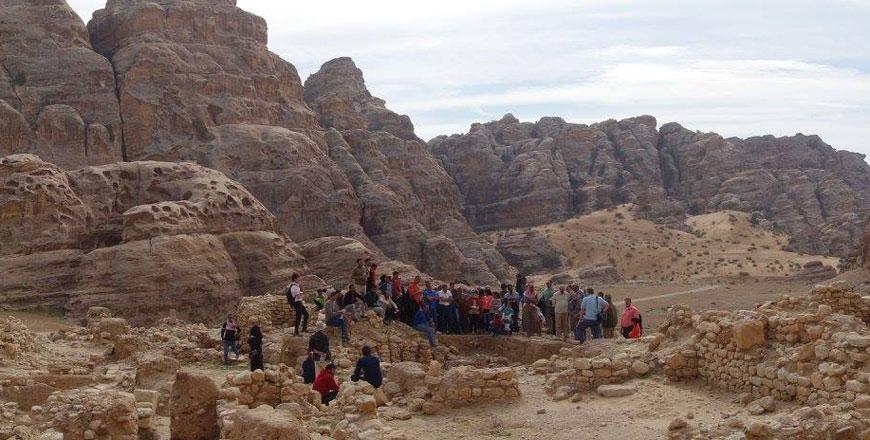You are here
Lecture hears of ‘politics of heritage’
By Saeb Rawashdeh - Mar 23,2022 - Last updated at Mar 23,2022
AMMAN — Scholars should return to formative years of archaeology in order to understand the colonial history of archaeology and the power dynamics of colonialism, according to a Jordanian cultural heritage management expert.
Speaking during a lecture titled “The politics of heritage; case studies from Jordan” organised by the Council for British Research in the Levant, Shatha Abu-Khafajah said that colonial archaeology produced informative knowledge that proved to be “authoritative, cyclical and persistent”.
The history of the region was “hijacked by Western powers and used to legitimise colonisation”, Abu-Khafajah, a professor at the Hashemite University, said.
She underlined the need to include the social science in archaeology and integrating the best practices from both disciplines.
“Public awareness and community outreach programmes are common practices and tactics used by international archaeologist operating in the postcolonial context all over the world,” Abu-Khafajah highlighted, adding that “a self-reflective approach should enable a local community to break with intellectual colonialism taking an active role”.
Speaking also during the event, Associate Professor of Archaeology and History of Art at Koç University in Istanbul Christina Luke noted that in 1960s tourism became integrated into five-year plans throughout the Middle East, and the crucial moment occurred when in 1963 the USAID gave a grant to Jordanian authorities for a tourism development plan.
“Heritage is a driver of the economic development,” Luke said, adding that Petra and Jerash were chosen by the USAID as two most prominent sites.
“Scholars recently grew more sensitive to the local community,” said Abu-Khafajah, adding that this academic attitude has been happening because the local communities have a platform in social media to address their problems.
Related Articles
AMMAN — In its current form, education in the Kingdom does not nurture the relationship between students and “the place”, which is partly to
AMMAN — The subtle and dynamic architectural style of Jabal Amman neighbourhhod has shaped its vibrant heritage which functions as the heart
The question of development relates to the practical measures that can be taken by individuals and organisations “within the scientific community” to maintain values alongside innovation and create a culture of scientific education, according to HRH Prince Hassan.












